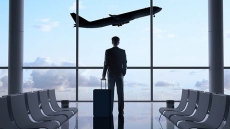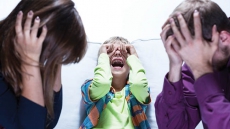In political circles, the refugee crisis will continue to dominate the debate in 2016 to the extent of polarizing voters and stimulating opponents on the right and left. The year will also test the hospitality status of governments and citizens towards the refugees.
While the ongoing refugee crisis continues to dominate political debates, and leaders vigorously dissect their sudden spurt into various geographic regions, the fact remains, we have failed to safeguard lives and avert the war debacle that has crippled war-inflicted nations in the Middle East, Africa and Asia. When these asylum-seekers, primarily from Syria, Iraq and Libya, embark on dangerous journeys to Europe via the Mediterranean Sea in ramshackle boats, cold mountain steppes of the Balkans, and other irregular routes, they are greeted with inconsistent responses ranging from a warm welcome by a banner-wielding crowd, to riot police and tear gas to break the influx of refugees.
With the exodus of refugees routing into Europe, there have been divisions within the European Union member states over how to deal with the ongoing migration crisis. The evident division became even more pronounced following coordinated militant attacks in Paris and forced the United Nations to release a statement warning nations that have pledged acceptance of refugees, not to backtrack on their promise. And although western European states such as Germany have granted asylum to a large number of refugees, eastern European nations have expressed reluctance to share the distribution.

Finding shelter in Canada
Prime Minister Justin Trudeau’s self-imposed timeline to resettle 25,000 refugees in Canada has been extended to February 2016. Experts however have labelled the timeline as unrealistic considering just over 6,000 refugees actually made it into the Canadian borders in January this year.
What echoes experts concern in regards to a realistic settlement timeline in Canada is Immigration Minister John McCallum’s statement committing a total of up to 50,000 refugees, a majority of them Syrians, in Canada by the end of 2016. Peter Goodspeed, a veteran journalist who received the Atkinson Fellowship in Public Policy and has been working on refugees experience in Canada, is part of Lifeline Syria - a group working towards the recruitment and training of sponsor groups for refugees.

Goodspeed highlights some initiatives the government can take towards easing settlement of refugees in Canada by saying, “They (government) do a lot with the settlement projects that they do have in place now. It would be interesting to see if they could be able to come up with things like job creation incentives that would give people an opportunity to give refugees work experience in Canada. That is one of the things that a lot of people do find difficult when they come. I know when people work with sponsors working with refugees, they find it encouraging doing things like volunteer work just to get used to the Canadian work place and have it.”
Trudeau’s Liberals have pledged to take the “most vulnerable” refugees which include women who have faced sexual abuse or violence and children who have gone through similar traumas.
South Asians serving refugees
When Prime Minister Trudeau was photographed welcoming refugees at Toronto’s Pearson International airport in December 2015, the headline was flashed internationally favouring the hospitality and urging international leaders to follow suit. The Canadian spirit was reflected nation-wide with communities and businesses diving in to offer support and comfort by delivering millions in sponsorships, housing, furnishing and other necessities.

Amongst the active pool of communities and organizations extending various services towards facilitating resettlement of refugees in Canada is the South Asian community. Individuals from various fields including business, education and health have come forward to allocate relief mechanisms in this direction.
Daljit Thind, founder of Thind Properties Ltd. has offered accommodation of seven units in the 2400 block of Kingsway to refugee families arriving in BC. “Offers made to Syrian refugees are on a humanitarian basis. Being an immigrant myself I understand that their first challenge will be to find housing as they transit into a new country. I feel lucky enough that I have possible resources due to which I could extend them this help.”
Dr. Pargat Singh Bhurji, paediatrician and neonatologist has teamed up with Dr. Gulzar Singh Cheema, family physician, to put together a team of medical professionals that will address the health needs of refugees. “Being a specialist in paediatrics I can serve to provide care for children. In winter, the main illnesses could be chest infection, pneumonia, viral fever, vomiting and diarrhoea. Children and elders are more at risk. Apart from the physical health issues, there could be issues with mental health. We have developed a team of family physicians, internist, paediatrician, psychiatrist and other health professionals as needed. We will also aim to provide basic medications and would be willing to visit them as they will not have transportation to visit a physician’s office. This pilot project would be done for 4 to 6 weeks [and] then [a] reassess[ment] [will be done].”
Tony Singh, founder and president of Fruiticana grocery chain has promised free grocery for the next three months to refugees, Khalsa School, a private school in Surrey will be providing free education for one year to 1,000 refugee students. Meanwhile, Gurdwaras and temples across Metro Vancouver are collecting food, clothing, blankets and other donations and will reportedly be launching a province-wide campaign asking for free accommodation for the refugees.

Does 2016 bring hope for refugees?
In political circles, the refugee crisis will continue to dominate the debate in 2016 to the extent of polarizing voters and stimulating opponents on the right and left. The year will also test the hospitality status of governments and citizens towards the refugees. Nonetheless, the generous outpour of volunteers and organizations has extensively contributed in equipping individuals and families, for example through training and jobs, social media connectivity with relatives and organizations, as well as private sponsorships. What 2016 will bring to the traumatised and displaced families is difficult to define but the crisis will certainly define the fate of Europe.
Photos Courtesy of: WikipediaCommons, HuffPost, Reuters, Euronews, Thestar, Politicoscope






